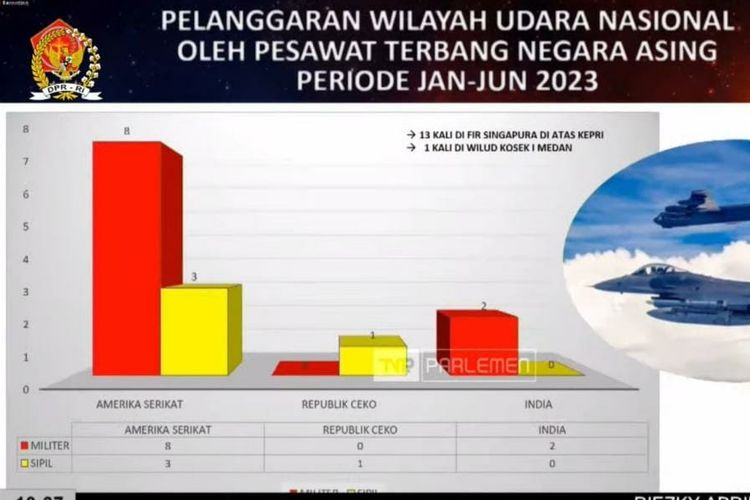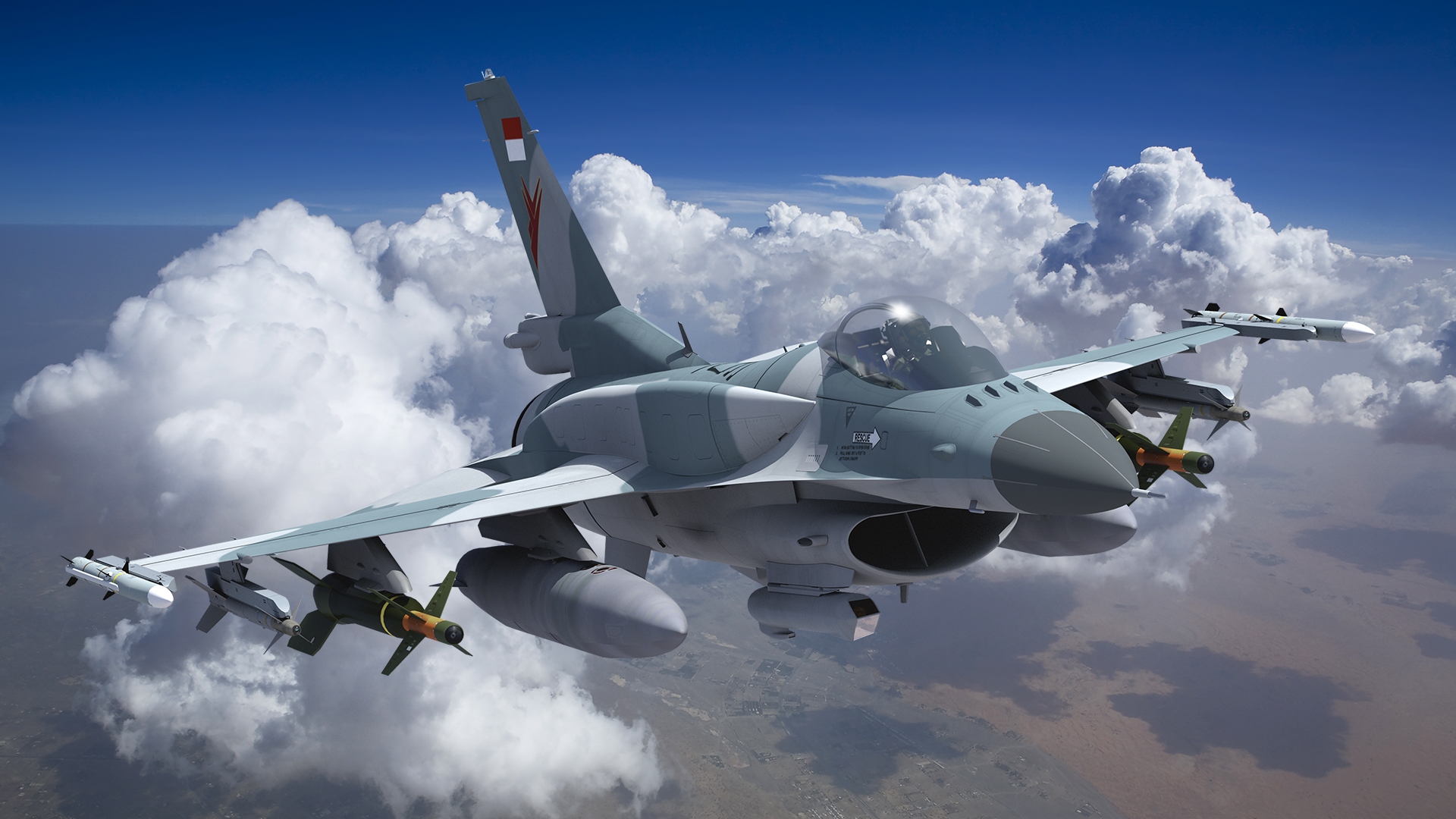Indonesia has revealed that US and Indian military planes frequently trespassed into the country’s airspace from January to June 2023.
On July 11, Yudo Margono, Commander of the Indonesian National Armed Forces (TNI), disclosed this information during a Consultation Meeting between the House of Representatives Leadership and the government, as per Kompas, an Indonesia-based news outlet.
The meeting aimed to discuss the assessment and execution of state border and border area management for 2023-2024. The meeting took place at the House of Representatives in Jakarta.
Margono, citing statistical data, suggested that US military aircraft have been the most frequent violators of Indonesian airspace since the beginning of 2023, with a total of eight instances recorded.
Indian military aircraft, on the other hand, have been reported to violate Indonesian airspace twice during the same period.

Margono, during his presentation, highlighted: “The color red is a violation committed by military aircraft, precisely committed by the United States, recorded a total of eight violations. And Indian military aircraft have violated twice.”
The Indonesian National Armed Forces Commander provided further information, stating that US civilian aircraft have trespassed into Indonesian airspace on three separate occasions.
A civilian aircraft from the Czech Republic was also reported to have violated Indonesian airspace once.
Margono emphasized that these incidents occurred 13 times within the Singapore Flight Information Region (FIR) over Kepri, and one violation took place in the airspace of Medan.
The Singapore FIR encompasses some areas of Indonesia’s Riau Islands, including Batam, Bintan, and the Natuna Islands. This means the airspace violations reported within the Singapore FIR would include these areas.
Furthermore, Yudo pointed out that the surveillance capabilities of the TNI are limited due to the vast and challenging operational terrain they face.
The border areas in Indonesia lack adequate supporting infrastructure such as roads, electricity, and water, as well as limited sensors and equipment.
As a result, several blind spot areas have emerged, making it difficult to monitor those regions closely.
US Military Aircraft Intrusions
While instances of Indian military aircraft violating Indonesian airspace have been rare, there have been multiple occasions where US military aircraft have crossed into Indonesian airspace.
In certain situations, Jakarta has found it necessary to deploy fighter jets to intercept US military aircraft quickly.
One notable incident occurred in 2003 when a group of US military warplanes went into attack mode and prepared to engage Indonesian fighters sent to intercept them.
This confrontation occurred after the American warplanes crossed into Indonesian airspace without permission.
At the time, then Rear Air Marshal Wresnowiro revealed that the Indonesian Air Force radar detected five F-18 Hornets engaging in maneuvers above Bawean Island, located off the northern coast of Java island.
In response to this intrusion into Indonesian airspace, Jakarta dispatched two F-16 fighter jets to intercept the US planes. The Indonesian jets warned the US aircraft that they were operating within their airspace, alerting them to the violation.
Wresnowiro described the situation tense: “The F-18 planes went into attack positions. They adopted an attack maneuver and locked their missiles on our planes, ready to fire.”
The American planes involved in the incident were reportedly part of a US Navy convoy passing through Indonesian waters. They aimed to protect an aircraft carrier, two frigates, and a tanker traveling in the area.
The incident raised significant concerns in the Southeast Asian country regarding the potential violation of the country’s territorial sovereignty.

On the other hand, the US countered by stating that the warplanes involved in the incident did not violate international laws and that they had informed the Indonesian authorities beforehand about the exercise they were conducting.
The US maintained that its actions were within the bounds of international regulations regarding military operations.
However, Indonesian officials stated that they received a commitment from the US that warplanes would not fly over Indonesian islands or territory without prior permission.
That being said, despite occasional incidents of airspace violations, the bilateral relationship between the United States and Indonesia remains relatively unaffected.
The two countries maintain good ties; recent positive gestures have demonstrated their growing partnership. For instance, on June 19, two Air Force B-52s made history by landing in Indonesia for the first time, symbolizing a gesture of cooperation and partnership with this strategically significant Southeast Asian nation.
- Contact the author at ashishmichel(at)gmail.com
- Follow EurAsian Times on Google News




